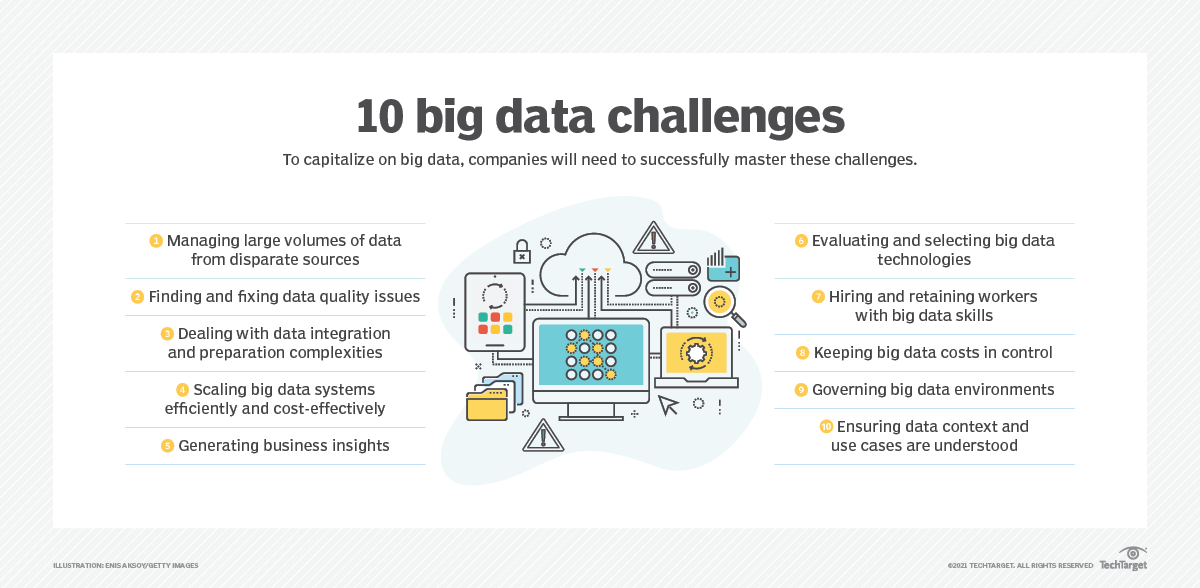Types of Problem Suited to Big Data Analysis.
Types of Problem Suited to Big Data Analysis.
Big data analysis is particularly well-suited for tackling complex problems that involve large volumes of data, high velocity, and varied data types. Some types of problems that are ideally suited for big data analysis include:
Predictive Analytics:
Big data analysis enables organizations to predict future outcomes based on historical data and current trends. This includes forecasting sales, predicting customer behavior, and anticipating equipment failures. Big data analysis is well-suited for addressing a wide range of business and societal challenges. Here are some common types of problems where big data analytics can make a significant impact:
Pattern Recognition and Anomaly Detection:
Big data analytics can identify patterns, trends, and anomalies in large datasets that may not be apparent through traditional analysis methods. This is useful for fraud detection, cybersecurity, and quality control.
Personalized Recommendations:
Big data analysis powers recommendation systems that offer personalized suggestions to users based on their preferences, browsing history, and past interactions. This is commonly used in e-commerce, content streaming platforms, and online advertising.
Healthcare and Genomics:
Big data analytics in healthcare can analyze large-scale clinical data, genomic data, and medical imaging to improve diagnosis, treatment planning, and drug discovery. It enables personalized medicine and precision healthcare interventions. Big data analytics aids in disease detection, drug discovery, and patient outcomes.
Social Media Analysis:
Big data analysis can analyze social media data to extract insights into public sentiment, trends, and behavior. This is valuable for market research, brand monitoring, and reputation management. Analyzing social media data provides insights into public opinion, brand perception, and emerging trends. Companies can adjust marketing strategies based on sentiment analysis.
Supply Chain Optimization:
Big data analytics can optimize supply chain operations by analyzing vast amounts of data related to inventory levels, demand forecasts, transportation routes, and supplier performance. This improves efficiency, reduces costs, and enhances responsiveness.
Climate Modeling and Environmental Monitoring:
Big data analysis is instrumental in climate modeling, weather forecasting, and environmental monitoring. It processes data from satellites, weather stations, and sensors to predict weather patterns, track environmental changes, and inform disaster preparedness efforts.
Smart Cities and Urban Planning:
Big data analytics can analyze data from IoT devices, sensors, and urban infrastructure to optimize city services, manage traffic congestion, and improve public safety. This leads to more sustainable and livable cities.
Financial Risk Management:
Big data analytics can assess financial risks by analyzing large volumes of transaction data, market trends, and economic indicators. It helps financial institutions identify and mitigate risks related to fraud, market volatility, and credit defaults.
Scientific Research:
Big data analysis accelerates scientific research by processing large datasets in fields such as astronomy, particle physics, and genomics. It enables discoveries, simulations, and hypothesis testing that were previously impractical or impossible.
These are just a few examples of the types of problems ideally suited for big data analysis. In general, any problem that involves large-scale data processing, complex patterns, and real-time insights can benefit from big data analytics.


Comments
Post a Comment